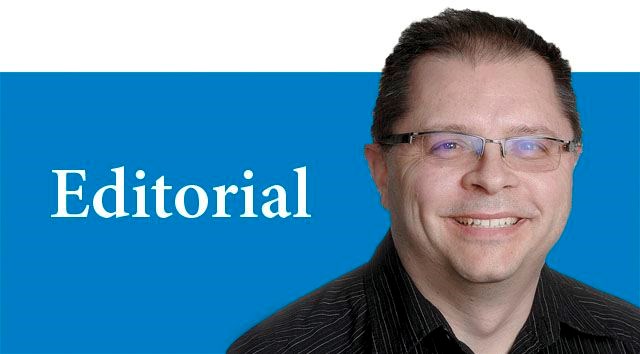Part 2 of 2
In The Waldo Moment, an episode of the Netflix series Black Mirror first broadcast in the UK in 2013, a cartoon character used on a comedy show to roast politicians is entered as a candidate in a British by-election. The cartoon becomes increasingly popular with voters, even though it has no platform except to make crude jokes and demean other politicians.
Sound familiar?
As Donald Trump prepares to be sworn in as the 45th president tomorrow morning, perhaps the most interesting thing about Trump is how unlike the outgoing Barack Obama he seems to be, yet how millions of American voters saw no contradiction in voting for both of them.
Devout supporters of Trump or Obama have trouble reconciling that paradox but it's not that hard. Both Trump and Obama share two essential personality traits that are essential to political success and to leadership: confidence and authenticity.
Although Obama's hope and change message seems in stark contrast to Trump's fear and rage, they were both delivered with the confidence of someone who knows what's going on and, most importantly, how to fix it. Truly, how different is Obama's Yes We Can from Trump's Make America Great Again? The strategic goals are one and the same, even if the starting point and the path to get there are radically different.
Obama sees a country that is structurally sound and just needs to continue on the path of progress but Trump sees a nation in peril, one that is crumbling and needs bold action to restore it. Put another way, Obama was inspired by Martin Luther King's dream but Trump is fuelled by the nightmare of American decline.
Joan Williams, a University of California law professor writing in the Harvard Business Review, offered other reasons for the appeal of Trump to a wide swath of voters, particularly the white working class. Her analysis is far more insightful than just dismissing white Trump voters as redneck racists.
As Williams wrote, the white working class, particularly in the Rust Belt, those so-called blue wall states that hadn't voted Republican since Ronald Reagan and were supposed to carry Hilary Clinton to victory, "resent professionals but admire the rich." Put another way, they hate know-it-all managers but they love the owners. More broadly, they distrust doctors, lawyers, teachers, journalists and anybody else using big words, making big money doing little or no physical work and dismissing everyone who disagrees with them as racist or sexist or homophobic. It is these people, not the rich, whom the white working class call the elites.
The truly wealthy are perceived to be above the arrogance of the elite, Williams writes, because they have the money and power to do and say what they want, whether the professional elites like it or not. Trump embodies that as well as the guts to deliver "straight talk," another value the white working class respect. Blunt assessments are seen as honest and authentic. It doesn't matter if he's wrong sometimes, so long as he always calls it as he sees it.
Furthermore, for both men and women of the white working class, they see in Trump an old-school unashamed masculinity that has been mocked by the elite since the old Hans and Franz routines about pumping up girly men on Saturday Night Live. Even through his suit, certainly not the uniform of the white working class, Trump's projection of male strength comes through loud and clear. It was less about Clinton being a "nasty woman" and more about Trump being a real man. That's why the vote breakdown of white working class women was 62 per cent for Trump and just 34 per cent for women. "If they'd split 50-50," Williams wrote, "she'd have won."
She lost, Williams argued, because the elite ignore the resentment the white working class have towards the poor. For the elite, Obamacare is another in a long line of responsible action to elevate the poor and downtrodden. For the white working class, Obamacare was just another tax grab from their wallet to provide free health care for 20 million Americans too lazy to work for it.
Trump doubled-down on these sentiments and it carried him all the way to the White House. To no surprise, the liberal elite in the United States, Canada and Europe continue to dismiss him as an illegitimate president, ignoring both the millions of Americans who support Trump and their grievances, many of which are legitimate and deserve a fair hearing.
These Americans don't expect Trump to do everything he says he'll do but they'll always appreciate his willingness to say what he thinks needs to be done, without pulling punches.
Much like Waldo.
-- Managing editor Neil Godbout



